Chris Broderick interview: "I've always had an affinity for Jackson since even before I knew how to play guitar"
The Age Of Defiance and former Megadeth guitarist on his new signature models
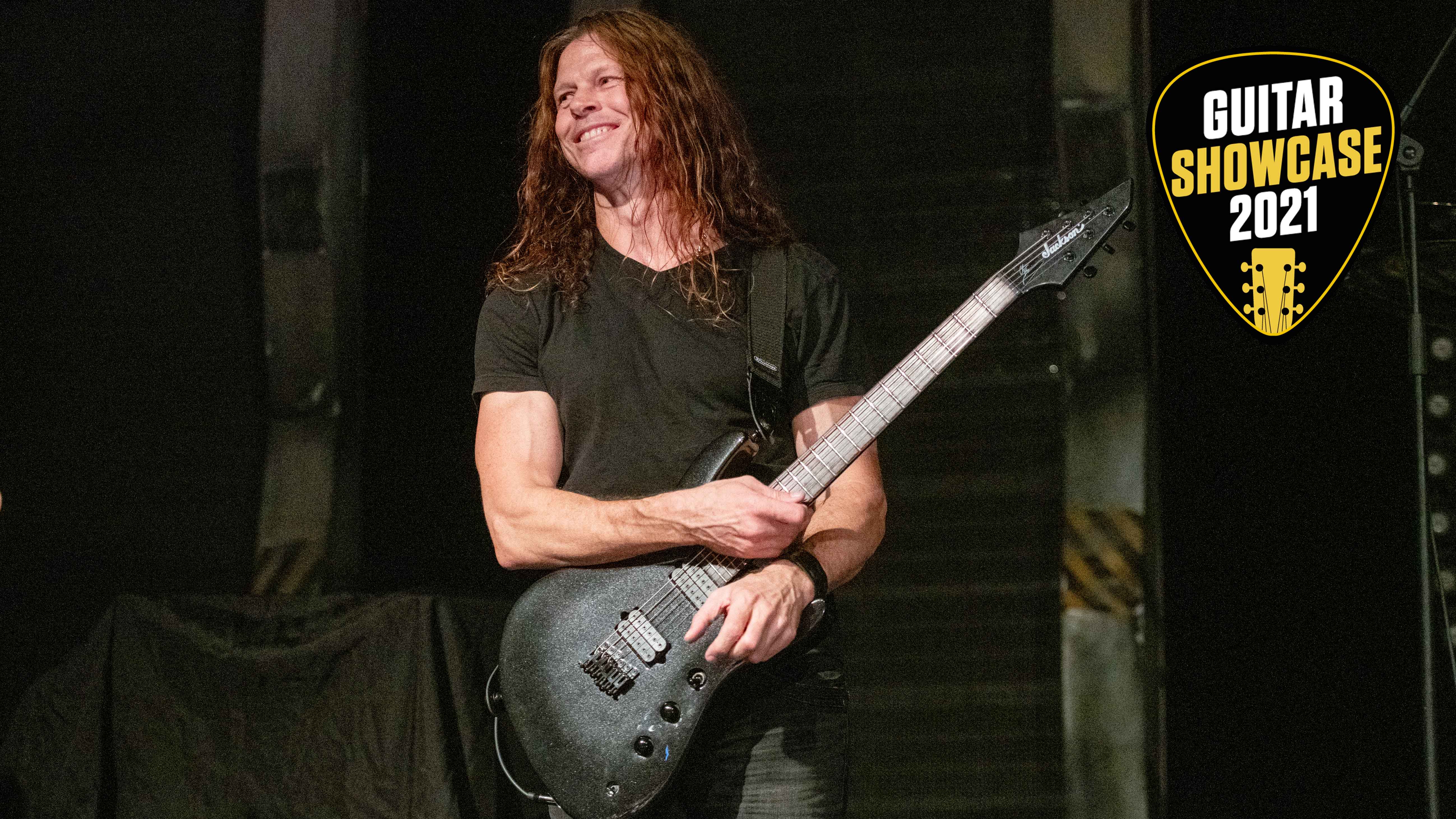
Guitar Showcase 2021: Chris Broderick is one of contemporary metal's great technicians. Known for his time as guitarist for thrash metal titans Megadeth, he is also the founding member of Act Of Defiance as well as being the live guitarist for In Flames. He also has an ongoing partnership with Jackson Guitars, who have worked closely with Chris to create what could very well be the ultimate metal lead guitar – the Chris Broderick Pro Series signature.
MusicRadar caught up with Chris to talk about the specifics of the instrument, the process of designing it and how small, subtle changes can often be the biggest game changers.
The thing that made me most want to work with Jackson is because they were willing to think outside of the box
First of all, what is it about Jackson Guitars that made you want to work with them?
"There were a lot of reasons. I've always had an affinity for Jackson since even before I knew how to play guitar. When I first met my best friend who got me into playing guitar, one of the first things I remember us doing was being at a family picnic and walking from there to a music store, where they had these Jackson guitars hung up on the wall. It was like a shrine. And then all of that '80s glory with the crackle finishes and crazy graphics and stuff like that. I just remember seeing Jacksons and Charvels all over the place.
"But really, I would say the thing that made me most want to work with Jackson is because they were willing to think outside of the box. They were willing to create with me rather than just slapping my name on one of their existing guitars. It was definitely more about innovation in my mind than I have seen with other companies."
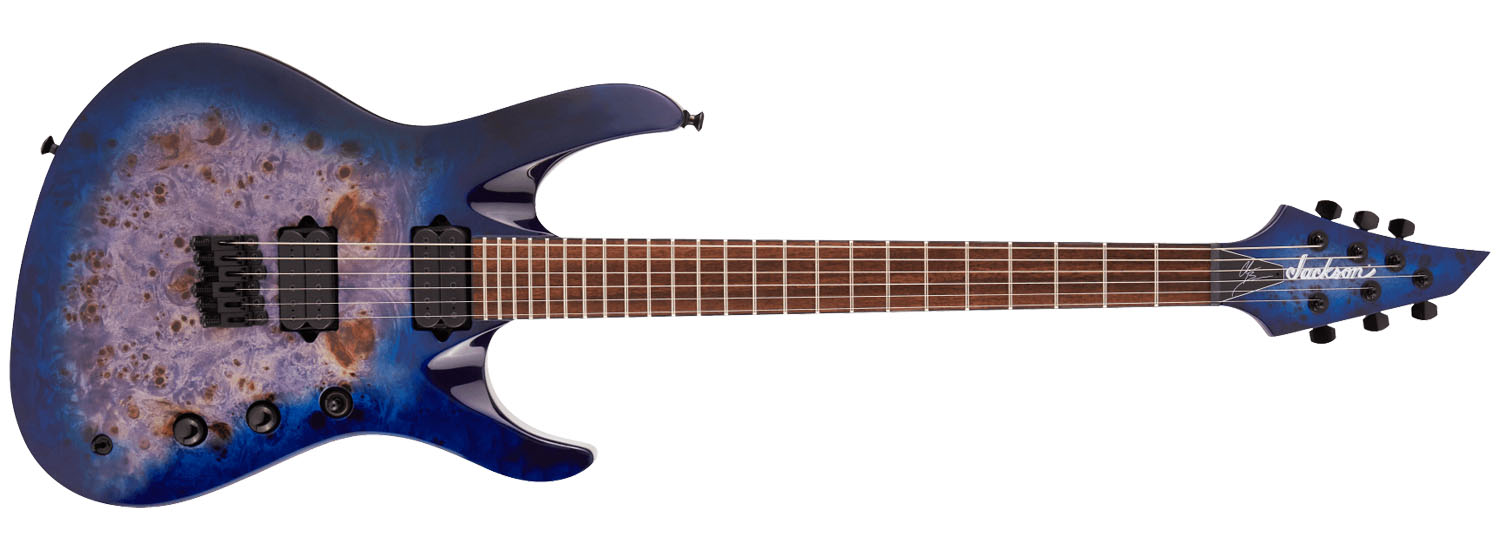
Jackson done a few iterations of your signature model now. Tell us a little about the main improvements that have come along with the new Pro Series Soloist hardtail and Floyd models.
"To me the changes do not feel minute, but I suppose they are minute because if you look at the guitar you might not see any difference at all. However, we actually made them an eighth of an inch thinner from the face to the back of the guitar. It just seems to create a better balance and a better weight ratio. If there was one thing people said about my guitars it was that they were always heavy, and they are definitely heavy guitars – but this has addressed that.
Get the MusicRadar Newsletter
Want all the hottest music and gear news, reviews, deals, features and more, direct to your inbox? Sign up here.
"Another innovation that I'm super proud of is the placement of the input jack. It is never where you would expect to find it at first until you know it is there, but it is super easy to plug in and it instantly provides strain relief on the cable itself through the strap. it is really ergonomic in that sense and you don't have to think about it. You put on your guitar, plug in and it is out of your way for playing when both sat down and stood up.
"Another thing I love is the new colours. The pearl blue top of the pro line series is just amazing to look at. I can't believe what a good job they did with that. Obviously, there's also a solid black offering for all the metalheads out there!
"We also re-did the binding for the newest update in the Pro Line series, which is really just a black binding around the fretboard. The rest is just going to be solid paint on the headstock and the body itself. I really like the way the aesthetic came out."
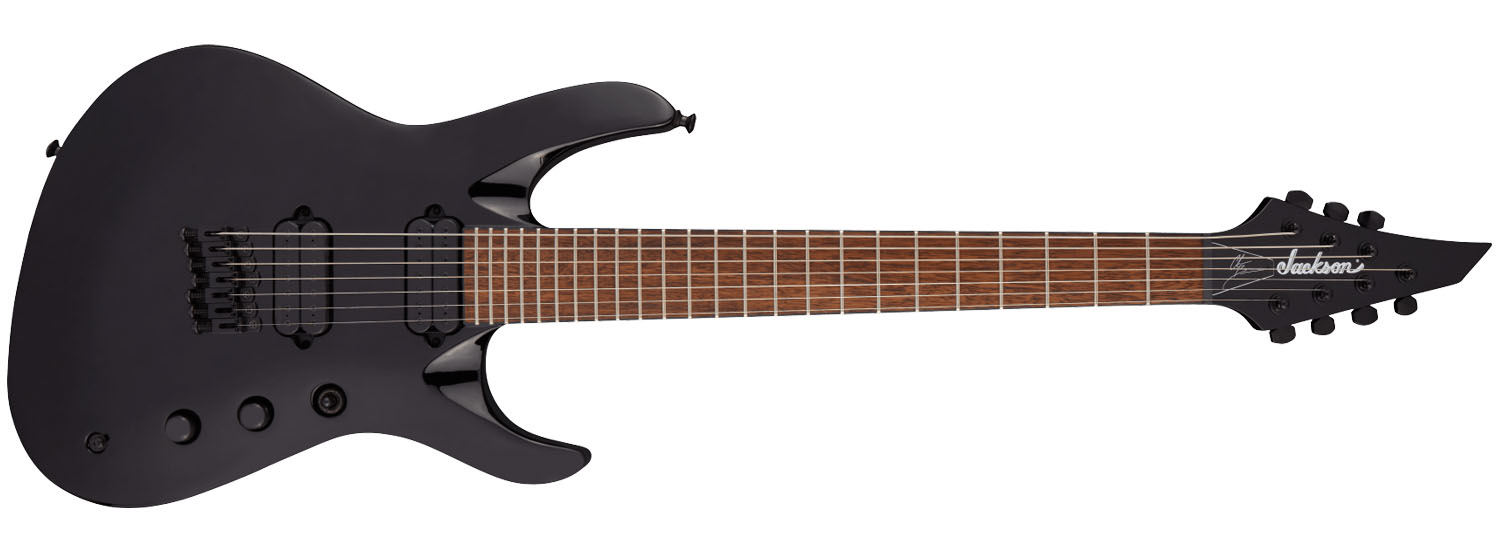
And you've got both six and seven-string versions of the guitar
"I'm a seven-string guitarist but when I joined Megadeth, David (Mustaine, Megadeth frontman) preferred that I play a six-string because it is more traditional for thrash music. When I started playing six-strings and when I started working with Jackson, I asked them if they would be willing to do both six and seven-string versions – and they were more than up for it. It was awesome that they were able to do that. Now that I get to play with my seven-strings again, I'm in hog heaven. If I want to play a six-stringer then I have one, if I want to play a seven-string then I have one too.
"There is a really subtle difference between the six and the seven-string too - really the only thing I did was open up the lower horn by maybe an eighth of an inch so there was a little bit more room for the wider fretboard. Besides that, the guitar is exactly the same."
All of your signature guitars with Jackson have an asymmetrical body, can you talk about the appeal of that?
"Well for me, it makes the guitar looks like it is in motion, especially when you are wearing it. It seems to be like it is running or moving in some way, and I love that -But it has a secondary function too, moving the end pin over so that it maintains a higher angle on the neck. To me it is a twofold kind of thing that is both aesthetic and for function."
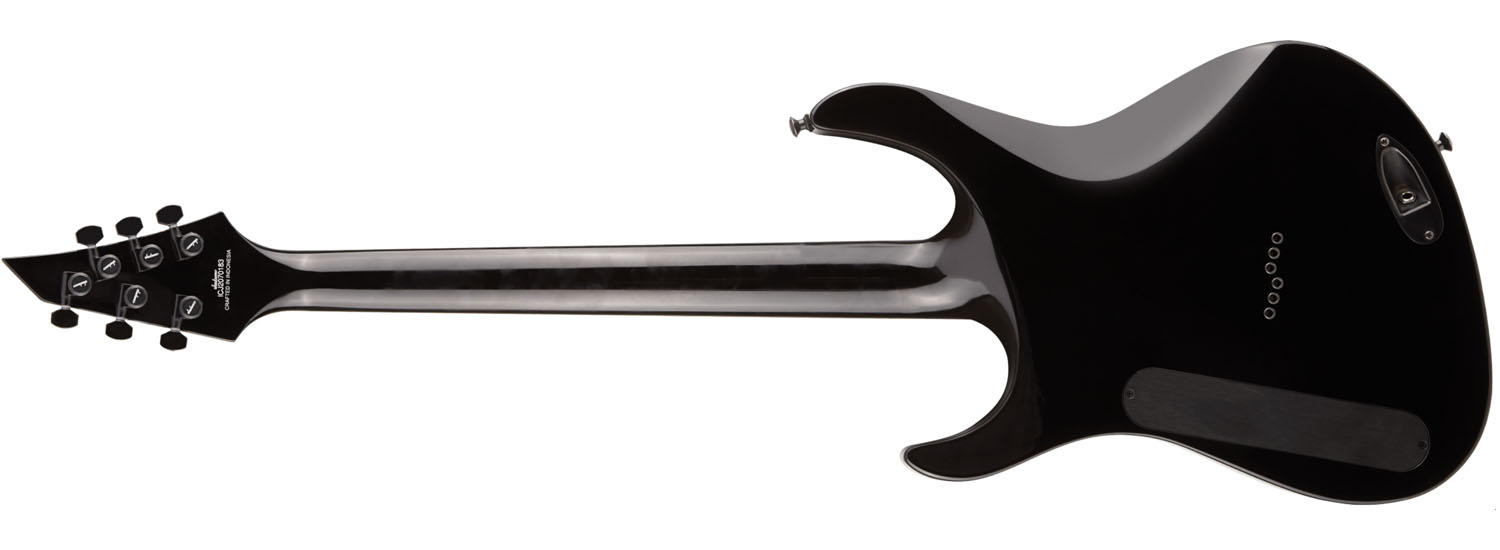
Passive pickups allow the dynamics to come through a lot more. They allow the pick attack to come through
You've also got signature pickups which are passive DiMarzio ones, which is not necessarily what you'd expect from a metal guitar. Tell us about the appeal of passive pickups.
"I've always loved the sound of recorded active pickups, but any time I have them in my hands for any length of time, they always start to sound the same. There's no difference in articulation, there's no difference in the way you get the note out of the string. Now, I would say that the note does sound really good, but it's definitely one kind of note that you can get out of active pickups. That's a reason why I'm a really big fan of passive pickups.
"They allow the dynamics to come through a lot more. They allow the pick attack to come through, and secondarily in today's day and age, if you want to have something approaching an active pickup sound, all you have to do is dial up your input gain – because that's all it is. It's a pickup that has a higher gain output than a passive pickup. On so many of the amps and modellers that I'm playing, getting that kind of an input is no problem. It gives you more range to play with."
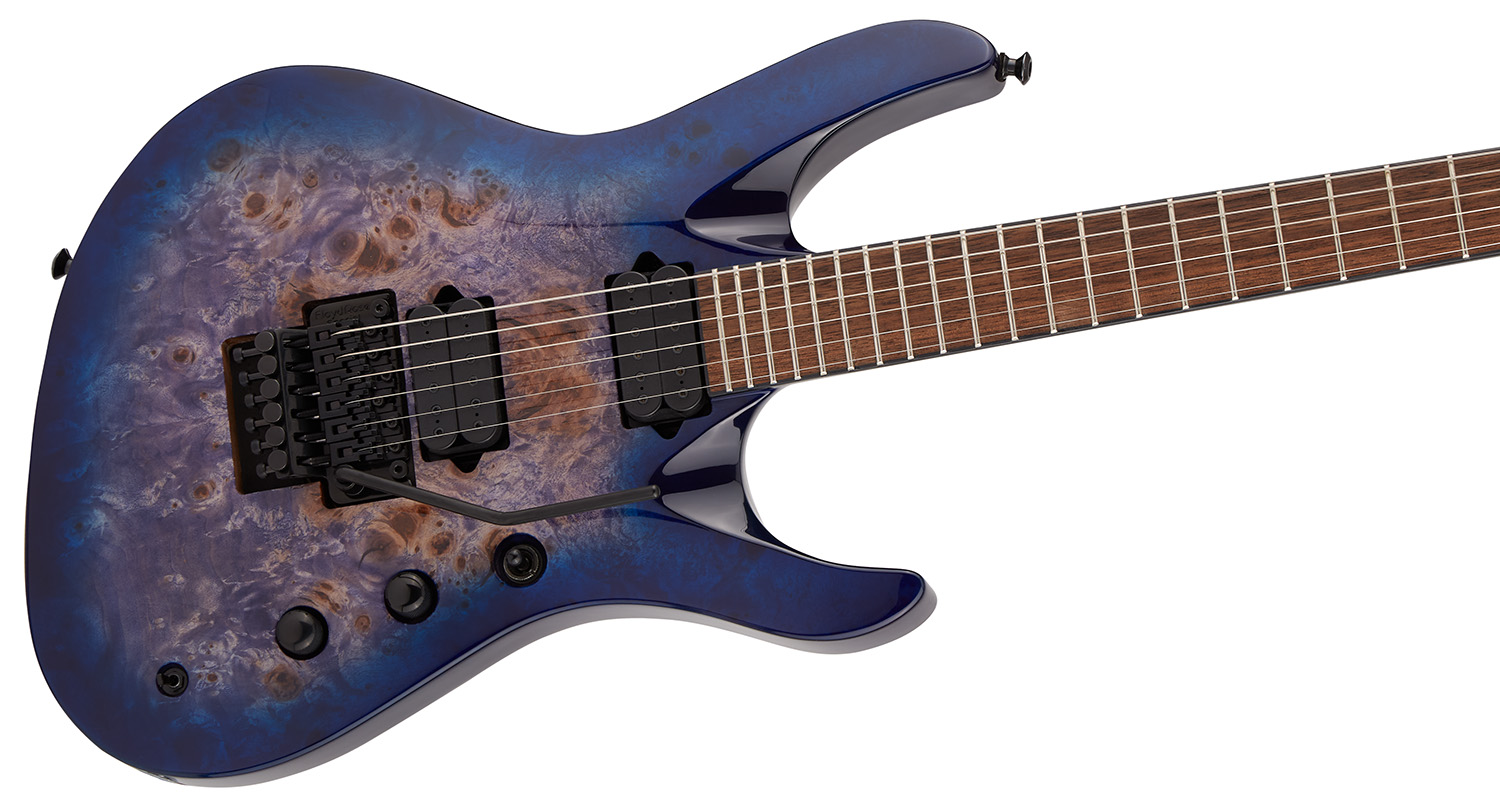
The kill switch is certainly a neat addition. Talk us through the functionality of that
"I like the idea of a kill switch because it is just quicker to make sure that your guitar is off, and that it's not going to feed back or anything like that. But at the same time I also like how it enables you to be really creative when it comes to rhythm. You can use it to play really glitched out rhythms which are really common in modern metal music. I always liked that idea because typically if you throw tremolo on your guitar or something like that it's a very fixed rhythm - just on, off, something like that.
"With this, you can alternate it over time and change it over time. Secondarily, it can be a complex rhythm as opposed to just being on and off like a tremolo can do. That's really what I see the potential of the switch being."
You've gone with a quartersawn maple neck - How do you decide which material to use for the neck? Is it just based on past experience of what has felt good?
"Obviously I don't have extensive knowledge of different woods and their densities, so I tend to go with tradition and think of a maple neck with an ebony or rosewood fingerboard. I do prefer darker fretboards because they hide all of the dirt that you get on there from all of the hours of practice, so I prefer that.
"As far as the maple goes, it's about having a really stiff wood for the neck to make it really rigid. I know they also run graphite runners through it as well which makes it even stiffer, which is awesome.
You have to adjust it once in a while if you have high humidity changes and temperature changes, but not nearly as much as some instruments I've had to deal with in the past
What would you say are three key features that a signature model of yours always needs? What can't you live without?
"I would say a 12-inch radius fretboard would be the first one. I wouldn't be opposed to trying with a greater radius, but I've always heard there can be problems with that in terms of bending the notes and having them fret out. I'm a little too afraid to try and go over the edge with that!
"A 12 inch radius is pretty curved for electric guitars and the fact it is constant throughout the fretboard, I really like that. I love the feel of curved radius fretboards. The second thing would be the body style which we touched upon earlier. The third would be the thin seam neck that Jackson makes. To me, that was a must for playability."
How durable is the guitar for playing live? Do you see it as more of a studio guitar or a live guitar, or is it both worlds?
"It's definitely both – you try and create an instrument that functions in all arenas. It's definitely not a delicate guitar where you have to manage your environment all that much, so it functions extremely well on the road.
"The tuning stability is great. You have to adjust it once in a while if you have high humidity changes and temperature changes, but not nearly as much as some instruments I've had to deal with in the past, so it is awesome for that. In the studio it sounds great – It sounds as good as I can get it to sound. So I use it in both all the time, these days exclusively."
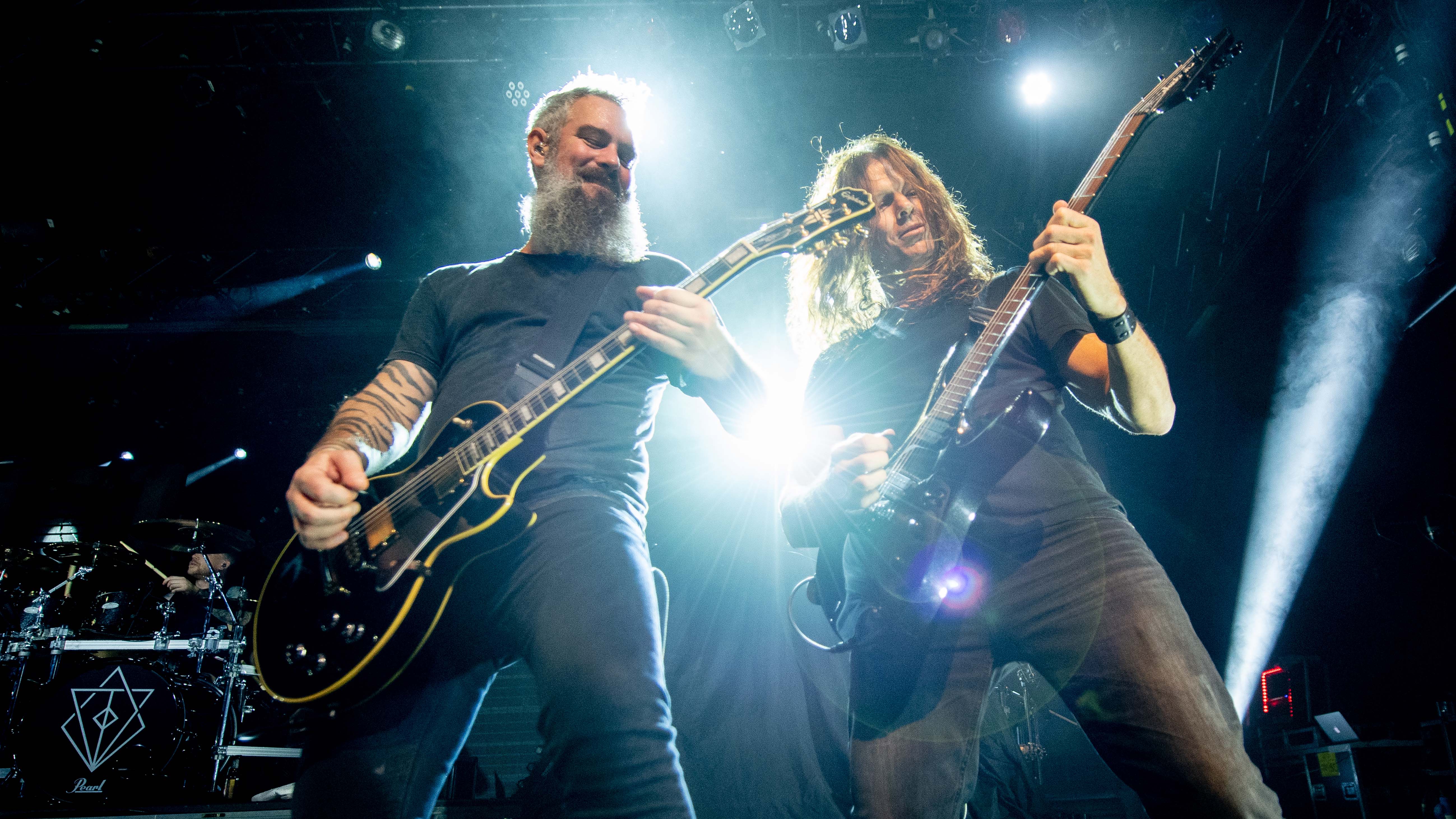
I don't want to create an instrument that the average person can't afford
How do you perfect it from now on? Because like we were saying earlier, there's lots of incremental and minute changes that have been made to it with each iteration - But this latest version sounds like it is the perfect guitar for you.
"I would agree with you at this moment, but perfection is a relatively subjective term. Opinions change, ideas change, concepts change. Also, your knowledge about something changes. Just the little update that I had for this new year for the new version of the Pro Line, I didn't have these ideas back when I started the Chris Broderick soloist series. Now, there will always be things like that, but right now I have the perfect instrument for this point in time. I think the future version of me might disagree!
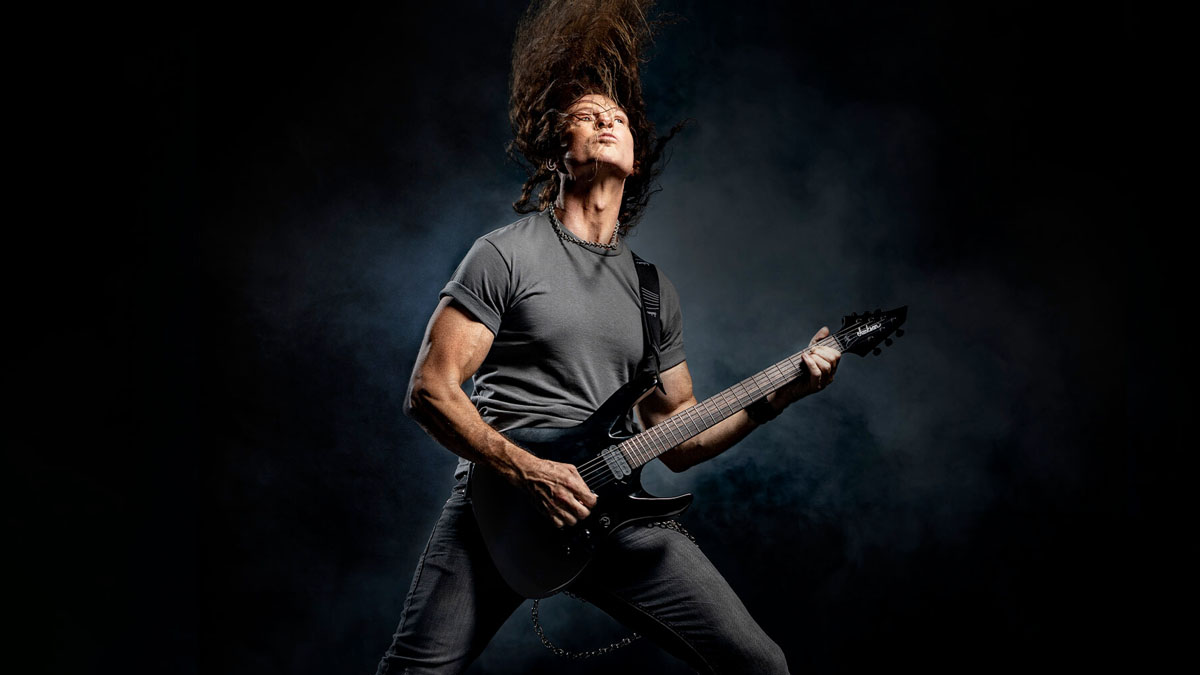
How important is affordability when making a signature guitar? Obviously you want it to be perfect for your needs, but you also want it to be a product that people can buy.
"That's extremely important to me. I don't want to create an instrument that the average person can't afford. I know that there are tons of instruments out there that will work for the average person.
"The weekend warrior who gigs once a month or the hobbyist who just plays at home whenever they can; there's a thousand guitars that'll work for them. I want to create the best guitar that will work for them that is within their budget. And I don't think it needs to be a six or seven thousand dollar guitar to be playable onstage. I want to keep the price point where it is right now. Obviously I am listening to Jackson on that too, but it is definitely important to me for it to be affordable."
And finally, what are you up to musically at the moment? You've got your band Act of Defiance but also tour with In Flames. We're guessing all of that is on hiatus at the moment though?
"Yeah, unfortunately I haven't been playing live for almost two years now because of Covid. I was set to be out on tour throughout almost all of 2020 and even should be out right now, but there's issues with that so we are patiently waiting and trying to let things calm down so we can go out and tour safely.
"I've been a touring part of In Flames for the past three years – minus the 18 months we've not been able to tour – and it has been great playing with them. I have extensive tour plans in 2022, and then we'll see how it goes from there."
For more information on the Jackson Pro Series Chris Broderick Soloist series visit Jackson Guitars
Sam Drower is a sound engineer, musician and all-around music junkie based in Bristol, UK. He began contributing to MusicRadar in 2020, when the global pandemic brought live music to a screeching halt. When not behind the mixing desk for various bands, he is playing bass for blackened mathcore group Host Body.
“I’m beyond excited to introduce the next evolution of the MT15”: PRS announces refresh of tube amp lineup with the all-new Archon Classic and a high-gain power-up for the Mark Tremonti lunchbox head
“These guitars travel around the world and they need to be road ready”: Jackson gives Misha Mansoor’s Juggernaut a new lick of paint, an ebony fingerboard and upgrades to stainless steel frets in signature model refresh










